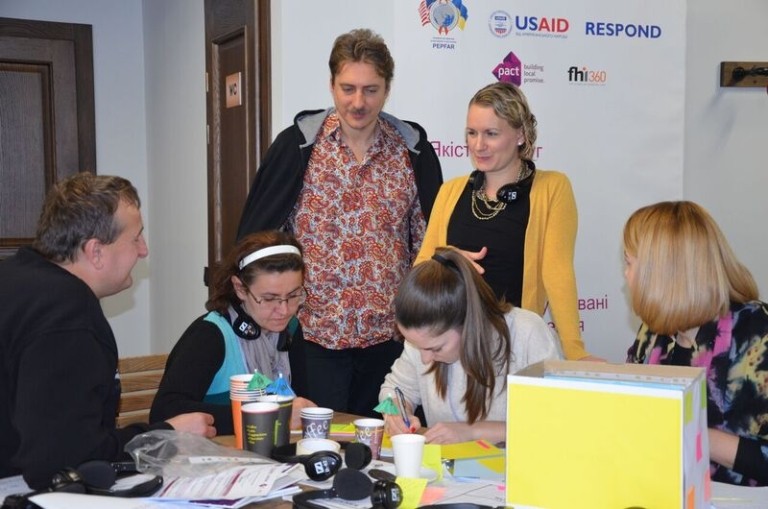Blog
Spotlight on Pact's social enterprise lead

This post originally appeared on the Vanderbilt Turner Family Center for Social Ventures’ website and has been cross-posted with permission.
Vanderbilt's Turner Family Center for Social Ventures recently sat down with Pact's Stephanie Marienau Turpin, a graduate of Vanderbilt University, to learn about her role, social enterprise in international development and advice for young people interested in social enterprise development.
Background
My professional life has been centered on the intersection of international development and social enterprise. I started my career working with a village savings and lending program in Zimbabwe and then had the great honor of supporting some of Africa’s most innovative social entrepreneurs at Ashoka. From there, I came to Pact, where for the past eight years I’ve worked on lots of the “weird stuff,” that doesn’t quite fit into the traditional development mold, like enterprise acceleration, impact investing and shared value.
I went to Vanderbilt for my undergraduate degree and will always be grateful for the way my professors and fellow students blended their pursuit of knowledge with genuine interest in promoting the common good. Seeing a commitment to excellence and compassion blended so seamlessly made a big impression on me.
I currently lead the impact investing and social enterprise unit at Pact. Pact has existed for more than forty years and now works in more than thirty countries around the world in health, livelihoods and natural resources management. For most of our history, Pact’s work has been almost entirely grant-funded, mostly from the U.S. government. However, in the last five years, Pact has made a fundamental shift, first diversifying its donor base, and then beginning a transformation of its resourcing and impact model. Connecting Pact’s work with the growing impact investing space is an important part of that story.
On the role of social enterprise in the field of international development
While the merging of financial and social purposes is certainly nothing new, the term social enterprise remains a fairly Western concept. What has been exciting for me in my role at Pact has been exploring what these ideas mean in vastly different global contexts—from Ukraine to Myanmar. Opening the conversation up to consider new organizational forms and different types of revenue as important ways of making social change is unleashing a new spirit of creativity on our sector that has been fascinating to watch. Now, I can point to all sort of interesting examples of nonprofits using creative financial instruments to advance their mission. To name just a few: Mercy Corps manages an investment fund focused on early-stage impact enterprises in emerging markets, CARE worked with Danone to launch a for-profit rural distribution business for health products in Bangladesh that now reaches 2 million customers, Habitat for Humanity is raising a $100 million fund to make small loans for housing improvements globally, and Catholic Relief Services is working to galvanize Catholics worldwide to consider more responsible investing practices, even convincing Pope Francis to give impact investing a nod. It’s an exciting time for innovation in international NGOs!
On the role of academic centers in supporting social entrepreneurship
This summer, Pact Ventures hosted a Turner Center Fellow, Sarah Imran. Sarah did some really exceptional research for us that helped shape our approach to working with early-stage social enterprises and more clearly articulate the value proposition that Pact brings to this space.
Speaking more broadly, I think academic centers play an important role in learning for the sector. As we are all moving so quickly to create whatever is coming next, it can be easy to become enamored with the new. Academics help us take a clear-eyed look at what is working and what isn’t.
Advice for current students
The fields of social enterprise and impact investing are moving fast! What they will look like 10 years from now will absolutely be shaped by visions still in the heads of innovators, including many current students. I would encourage students interested in development to keep exploring what you love to do, even if you don’t yet see the direct application for the social problems you are most interested in solving. The social change innovations that are most exciting to me are coming from areas of overlap between disciplines–art, financial services, science, technology, history and more. As a student, the whole universe of learning is open to you! Relish it and let your unique brain make connections that no one else has yet.